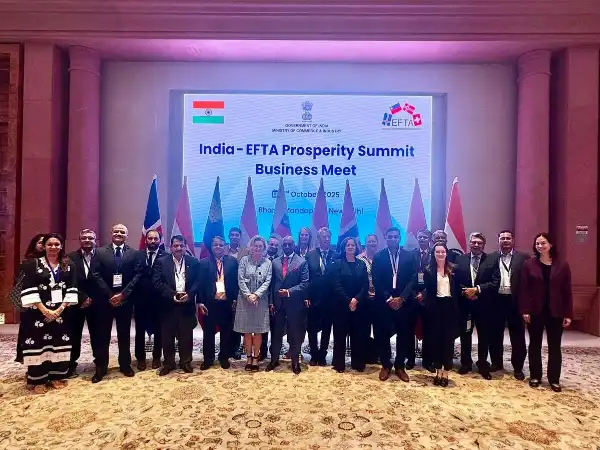Union Commerce and Industry Minister Piyush Goyal announced that India expects to receive not just the $100 billion in committed investments from the four-nation EFTA bloc under the trade agreement, but could attract an additional $150 billion in the near future.
The EFTA members include Iceland, Liechtenstein, Norway, and Switzerland. Under the India-EFTA Trade and Economic Partnership Agreement (TEPA), signed on March 10, 2024, India has secured a commitment of $100 billion in foreign direct investment over the next 15 years. Goyal indicated that the additional $150 billion would follow once data exclusivity provisions in India’s intellectual property laws are finalized.

Strengthening Trust Through IP Protections
Data exclusivity gives innovator companies exclusive rights to technical data that supports their product claims. In the pharmaceutical sector, this ensures that clinical trial data cannot be used by competitors to market cheaper versions of a medicine.
According to Goyal, building a strong and enforceable IP framework has helped bridge the longstanding trust gap with Switzerland and other EFTA countries. He emphasized that robust IP laws, coupled with India’s investor-friendly approach, would encourage not only the committed $100 billion in investments but also significant additional inflows.
TEPA Comes into Effect
The minister highlighted that TEPA officially came into effect on Wednesday, marking a milestone in India’s engagement with developed economies. This agreement complements other trade pacts India has signed, including those with the UAE, UK, and Australia.
Goyal described TEPA as a source of stability amid global trade disruptions caused by high tariffs and uncertainties in other regions. He also outlined the sectors where the agreement opens opportunities: life sciences, clean energy, precision engineering, food processing, technology, AI, accountancy, nursing, education, audiovisual services, culture, tourism, and geothermal energy.
Creating a Conducive Environment for Investors
Highlighting India’s investor-friendly climate, Goyal pointed out that companies like Nestle India and ABB India demonstrate strong market confidence, reflected in high price-to-earnings ratios. He assured EFTA businesses of transparent policies, smooth procedures, and 100% FDI allowance in most sectors.
Swiss State Secretary for Economic Affairs Helene Budliger Artieda called TEPA more than just a legal agreement, describing it as a “win-win partnership” that demonstrates EFTA businesses’ confidence in India. Implementation will include sector-specific roadmaps, export growth initiatives, and MSME support through matchmaking, quality, packaging, and sustainability programs.
